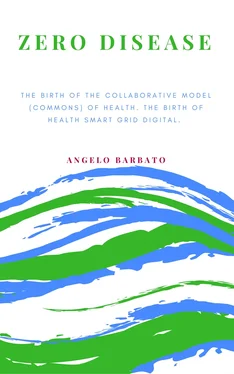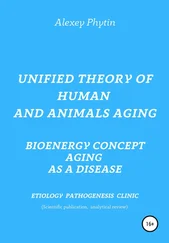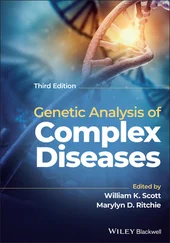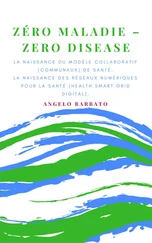Angelo Barbato - Zero Disease
Здесь есть возможность читать онлайн «Angelo Barbato - Zero Disease» — ознакомительный отрывок электронной книги совершенно бесплатно, а после прочтения отрывка купить полную версию. В некоторых случаях можно слушать аудио, скачать через торрент в формате fb2 и присутствует краткое содержание. ISBN: , Жанр: Медицина, Медицина, Здоровье, Спорт, на английском языке. Описание произведения, (предисловие) а так же отзывы посетителей доступны на портале библиотеки ЛибКат.
- Название:Zero Disease
- Автор:
- Жанр:
- Год:неизвестен
- ISBN:978-8-87-304045-3
- Рейтинг книги:5 / 5. Голосов: 1
-
Избранное:Добавить в избранное
- Отзывы:
-
Ваша оценка:
- 100
- 1
- 2
- 3
- 4
- 5
Zero Disease: краткое содержание, описание и аннотация
Предлагаем к чтению аннотацию, описание, краткое содержание или предисловие (зависит от того, что написал сам автор книги «Zero Disease»). Если вы не нашли необходимую информацию о книге — напишите в комментариях, мы постараемся отыскать её.
Zero Disease — читать онлайн ознакомительный отрывок
Ниже представлен текст книги, разбитый по страницам. Система сохранения места последней прочитанной страницы, позволяет с удобством читать онлайн бесплатно книгу «Zero Disease», без необходимости каждый раз заново искать на чём Вы остановились. Поставьте закладку, и сможете в любой момент перейти на страницу, на которой закончили чтение.
Интервал:
Закладка:
The âZeroâ vision expressed in the book-manifesto Zero Zone, written by professor Livio de Santoli and myself, thanks to the contribution of Angelo Barbato, has permitted us to trigger the spread of awareness around the Zero Disease concept. This occurs in a scenery in which the internet of things and the Third Industrial Revolution bring the centre of health care precisely onto the territory, calling for the necessity to increase prevention as a âPillarâ of the distributive model of health in medicine in the zone.
The new vision highlights that the traditional model based in the hospital has become ineffective for the treatment of chronic diseases which are increasingly diffused due to the lifestyles and occupations imposed since the Second Industrial Revolution, and which can be reduced by enhancing the prevention pillar. Telemedicine, home care, fight against chronic diseases, doctorâs actions on the territoryâs schools and public administrations and especially the adoption of proactive methods by the citizen-patients, will increasingly revolutionize how we deal with health, moving the focus from the institution to the area.
This new health model of the third Industrial Revolution will revolutionize the current paradigms of health care, reaching extraordinary and very rapid results, mainly through prevention. The new care model is the heart of the book âZero Diseaseâ. The realization of such a possible future depends entirely on us, starting from public administrations and health care enterprises. Notwithstanding citizens and their propulsive aggregating force which lead increasingly rapidly towards a biospheric, empathic, collaborative and sustainable lifestyle, where Community becomes Zero Zone.
Angelo Consoli
Director of the European Office of Jeremy Rifkin
President of CETRI-TIRES (Third Industrial Revolution European Society)
Co-Author with Livio de Santoli of the Manifesto-book âZero Zoneâ.
1. The wellness and health management in the ideological framework of Jeremy Rifkin
Bruno Corda Angelo Barbato
Jeremy Rifkin is one of the worldâs most recognized economists who in his recent work 1 2has stressed the progressive rise of a new economic system, gradually alternating and replacing capitalism. The engine of this transformation is the digital revolution, allowing the internet of things. Telecommunicationsâ Internet of things (or, more properly, the Internet of Things or IoT), is a neologism referring to the extension of Internet to the world of objects and concrete places 3. The internet of things is made up of a network between the energy internet, the communication internet and the logistics internet 4. Rifkin summarizes his economic thinking in three basic paradigms (energy, communications and logistics), stating that in the evolutionary change of these archetypes, man becomes the star of a new industrial revolution.
The first industrial revolution (about 1760-1870) was an economic transformation process or industrialization of society in which the agricultural and craft-trade systems became modernized and industrialized. Characterized by the generalized use of power-driven machines and of new, inanimate energy sources (such as fossil fuels - steam engines), the scheme was favored by a strong component of technological innovation. This was additionally accompanied by the phenomena of growth, economic development and profound socio-cultural and even political changes. This first industrial revolution began in the textile (cotton), metallurgical (iron) and mining (hard coal) industries.
The insurgence of the second industrial revolution (about 1870-1970) is conventionally set to 1870 with the introduction of electricity, chemicals and oil.
The third industrial revolution (1970) refers to the effects of mass introduction into industry of electronics, telecommunications and informatics 5.
In recent years a new generation of scholars and specialists have began to realize that the management and centralized control of commerce is giving way to peer production and horizontal distribution. The scale of property exchange on the market is becoming less important than access to goods and services on the network. Additionally, conscience is rising around the social capital as true economic value rather than the market capital.
The main result will be a more equitable society based on sharing and cooperation between citizens and a sustainable economic model, particularly from an environmental point of view.
The new paradigm will lead to a progressive market decline as we know it today, parallel to the development of a sharing economy based on the cooperation of the consumer who meanwhile also becomes producer (prosumer). This is the first new economic system to make its appearance since the birth of capitalism and socialism at the beginning of the 1800. A free economy is emerging, a mix between capitalism and collaboration. In 2050 Jeremy Rifkin predicts that capitalism will still exist, but it wonât be the sole economic system. Young people today collaborate with all sorts of things, produce and share their videos, their music, their news.
Online training courses are open and free, all this with marginal costs equal to zero. In fact, when producing a video, the marginal cost to distribute it to a billion people is virtually zero.
We're starting to see a new economic system in which there arenât only producers and consumers, owners and workers but also prosumers; millions of people who access the Internet platforms of things and are able to produce, consume and share any virtual service: news, knowledge, music, video. We are bypassing the great twentieth-century organizations at almost zero marginal cost: free of charge, in abundance and outside the market. This is a revolution.
What will happen to Multinationals?
Many of the big and vertical ones of the twentieth-century have already been destroyed, as has happened, is occurring and will continue to take place in the music and video industry, in editorials and in television.
At the same time, thousands of other new companies have emerged in the economy of sharing. Not just Google, Facebook and Twitter, but thousands of profit and nonprofit companies that are building the sharing economy, thereby enabling young people to share what they create.
It 'a very destructive process to the market economy as we know it today, but it is only the beginning of a revolution towards the democratization of economic life.
Germany is leading this revolution, and even small countries like Denmark and Costa Rica are doing well. Germany is ahead in the internet of energy with 27% of the energy produced by sun and wind. It will be over 35% by 2020 and 100% by 2040. The costs of technologies for energy production are significantly reducing as has happened in the computer industry. A solar watt costed $ 150 in 1970, now itâs charged 64 cents and it will drop to 35 within 18 months. Once Germany has paid off the investment expenses, the marginal cost of energy produced will be close to zero. The sun and the wind do not send any bill to be paid to the Germans. It's free. Germany is heading towards an energy system at zero marginal cost that will make the economy more productive and efficient in the world, hugely benefitting its businesses and families.
China, too, has begun to change its energy policy with investments starting at 82 billion dollars in 2015 to digitize the electric grid smart. Millions of Chinese will be able to produce solar and wind energy in their home and share it in the national electricity grid.
In electrical engineering and telecommunications, a smart grid (intelligent network) is the combination of an information network and an electrical distribution network in a manner allowing to manage the power grid âsmartlyâ.
Читать дальшеИнтервал:
Закладка:
Похожие книги на «Zero Disease»
Представляем Вашему вниманию похожие книги на «Zero Disease» списком для выбора. Мы отобрали схожую по названию и смыслу литературу в надежде предоставить читателям больше вариантов отыскать новые, интересные, ещё непрочитанные произведения.
Обсуждение, отзывы о книге «Zero Disease» и просто собственные мнения читателей. Оставьте ваши комментарии, напишите, что Вы думаете о произведении, его смысле или главных героях. Укажите что конкретно понравилось, а что нет, и почему Вы так считаете.












